Solar
Erika and Achim Ginsberg-Klemmt
Solar
Jonathan Lwowski
Solar
Dr. Eric Schneller
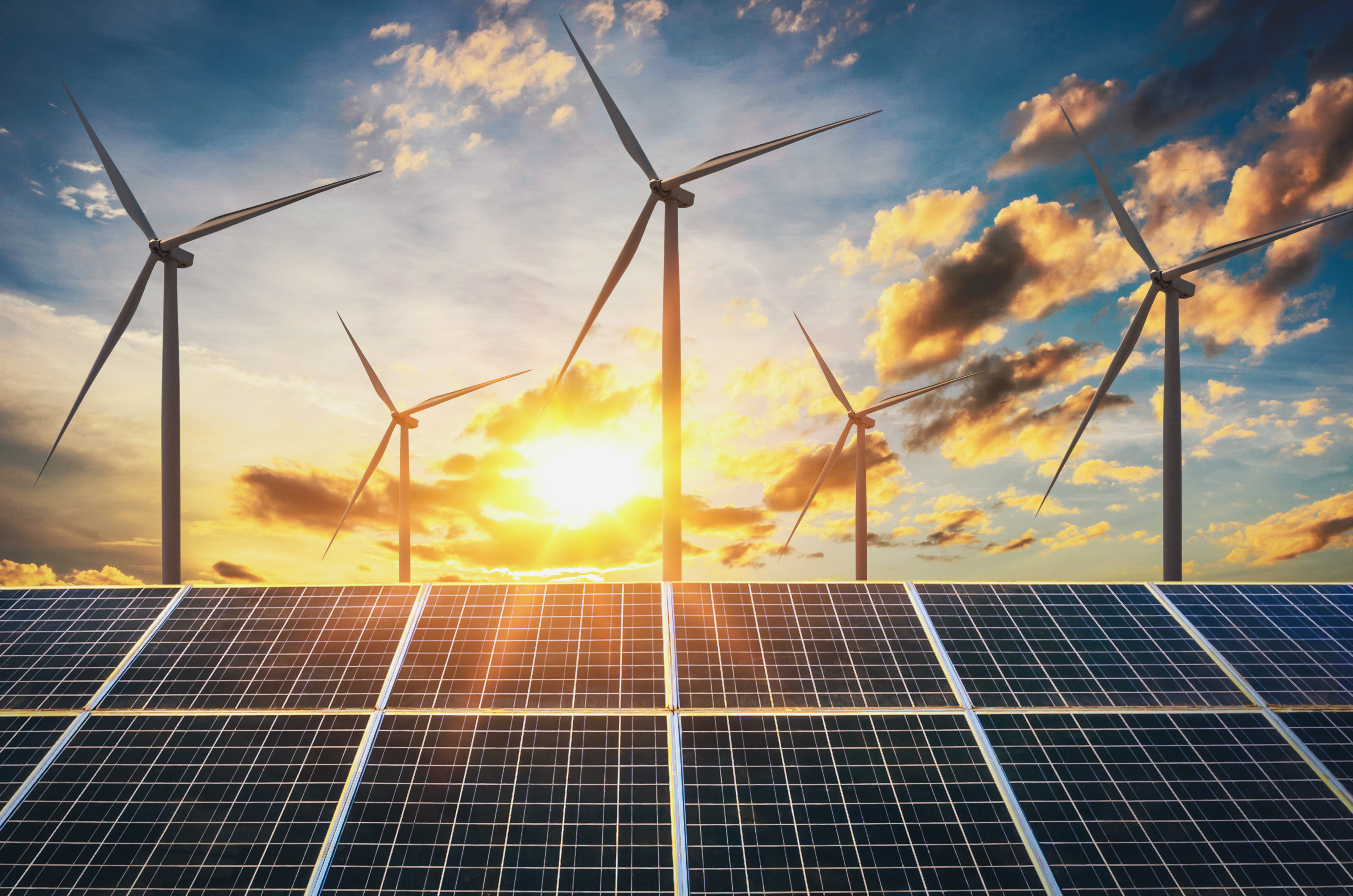
Stardust Solar Energy Inc. (TSXV: SUN) (the "Company" or "Stardust Solar"), a leading North American franchisor of renewable energy installation services, announced that it has entered into a non-binding letter of intent dated effective April 28, 2025 (the "LOI") with RSBC Global Inc. ("RSBC") for the purposes of exploring a strategic partnership that aims to establish a collaborative framework for warehousing and internal distribution capabilities across Canada, with future expansion opportunities into the United States.
This partnership is expected to enhance Stardust Solar's distribution network, streamlining the supply chain to deliver high-quality solar photovoltaic (PV) products and renewable energy systems more efficiently to meet robust market demand. Pursuant to the terms of the LOI, the proposed primary warehousing facility, strategically located in Owen Sound, Ontario, is expected to serve as a central logistics hub for Stardust Solar's operations, pending mutual agreement and necessary regulatory approvals.
"We believe that this partnership with RSBC Global Inc. represents an important step forward in our mission to streamline operations and scale our renewable energy solutions across North America," said Mark Tadros, CEO and Chairman of Stardust Solar. "Given the severe global supply chain uncertainty that has developed in recent months, we at Stardust felt strongly that now was the time for us to strengthen ours. By internalizing our distribution and warehousing capabilities, we expect to be in a stronger position to deliver greater value to our franchisees, enhance customer service, and capitalize on significant growth opportunities in the renewable energy market."
In parallel, Stardust Solar is actively engaging with international suppliers, including scheduled meetings this week with a leading Chinese import company. These discussions are focused on securing direct product sourcing, which - if successful - is expected to enhance the Company's competitive position by improving cost efficiency and ensuring a reliable supply of products to support its growing franchise network.
This strategic partnership aligns with Stardust Solar's recent expansions, including its entry into 49 new U.S. territories, and sales growth year-over-year in 2024. The move to internalize logistics and distribution functions demonstrates Stardust Solar's proactive approach to managing growth, enhancing profitability, and reinforcing its commitment to sustainable energy adoption.
Completion of the transactions contemplated in the LOI remains subject to the satisfaction of various conditions including, without limitation, the receipt by the Company and RSBC of all necessary corporate and regulatory approvals and other conditions customary for transactions of this nature and entering into a definitive agreement within sixty (60) days. Stardust Solar and RSBC are arm's length parties, and no finder's fees are expected to be paid in connection with the transactions contemplated in the LOI.
Stardust Solar | www.stardustsolar.com

Utilidata, a leader in edge AI technology, announced today that it has secured $60.3 million in Series C funding. The round was led by Renown Capital Partners–an investment firm focused on growth-stage technology companies helping to secure an efficient, affordable, and reliable energy system–with participation from Quanta, NVIDIA, and existing investor Keyframe Capital. Citigroup acted as sole placement agent to Utilidata on the transaction. This funding will enable Utilidata to rapidly scale Karman, its distributed AI platform developed in collaboration with NVIDIA over the last four years. Built on a custom NVIDIA module based on the NVIDIA Jetson Orin Nano edge AI platform, Karman can be embedded in any device connected to the energy system.
“With this round of financing, Utilidata is positioned to deliver a major breakthrough in how the world manages power across the entire energy ecosystem,” said James McIntyre, Co-Founder, CIO & Managing Partner at Renown Capital Partners. “By bringing artificial intelligence to the edge of the grid, Utilidata’s Karman platform will help deliver unprecedented efficiency, resilience, and security to energy infrastructure across the world.”
Rapid growth in data center power demand alone is creating new constraints for grid operators and hyperscalers. By 2030, it is estimated that data center power demand will increase by 160 percent. This growth combined with the global clean energy transition is creating increased complexity on the grid, requiring new and advanced solutions, like edge AI. By enabling high power compute and AI capabilities to be embedded directly into grid infrastructure and data centers, Karman unlocks grid capacity, increases reliability, and reduces carbon emissions.
Utilidata’s Karman platform is now available for purchase directly from Advantech, the global leader in IoT intelligent systems and embedded platform. This will make it easy for any hardware partners to embed Karman into their equipment. Hubbell Incorporated is already working with Utilidata to embed Karman into smart meters for electric utilities.
Utilidata’s strategic partnerships are designed to support utilities through every phase of implementing edge AI at scale. The company announced last year afirst-of-its-kind collaboration with Deloitte to support clients in navigating the modern power grid and has now partnered with Quanta Services to support the deployment of AI-enabled infrastructure at scale.
“Quanta’s expertise in electric infrastructure deployment positions us to help Utilidata scale AI across the grid,” said Andrew Schwaitzberg, Senior Vice President of Corporate Development at Quanta Services. “We look forward to showcasing the power of edge AI at the Quanta Advanced Training Center, and working with our customers and partners to modernize infrastructure. By enabling AI onto the physical grid, we can continue to support infrastructure that is more reliable and resilient as our customers’ needs grow.”
These investments, which will help scale Karman, come as several megatrends converge, including the rise of data centers and growing power demand. Quanta Services brings deep expertise in deploying power grid infrastructure and will play a critical role in ensuring that grid modernization keeps pace with the growing demands. NVIDIA’s AI innovations will help advance the transformative potential of Karman at the grid edge.
"Electricity has gone from being abundant and predictable to scarce and increasingly unpredictable,” said Josh Brumberger, CEO of Utilidata. “That paradigm shift requires fundamentally new technology and deeper industry collaboration. We’re bringing together a powerful coalition of partners who are committed to scaling AI across the grid to build a modern and dynamic energy system.”
“By embedding AI and accelerated computing at the grid’s edge, Utilidata is unlocking critical insights and enabling utilities and industries to make smarter, more informed decisions,” said John Rapaport, CIO of Keyframe Capital.“These new capabilities, which don’t exist today, will allow the energy industry to do more with existing infrastructure – tapping into valuable capacity on the grid at a time when load is growing rapidly for the first time in decades.
Utilidata | https://utilidata.com/

Weidmuller USA, a leading provider of smart industrial connectivity and automation products and solutionsheadquartered in Richmond, Va., has launched a Wireless Radio Migration Solution that enables utilities and municipalities to easily and securely upgrade their legacy radio networks to advanced industrial Weidmuller wireless radios in a controlled and systematic manner.
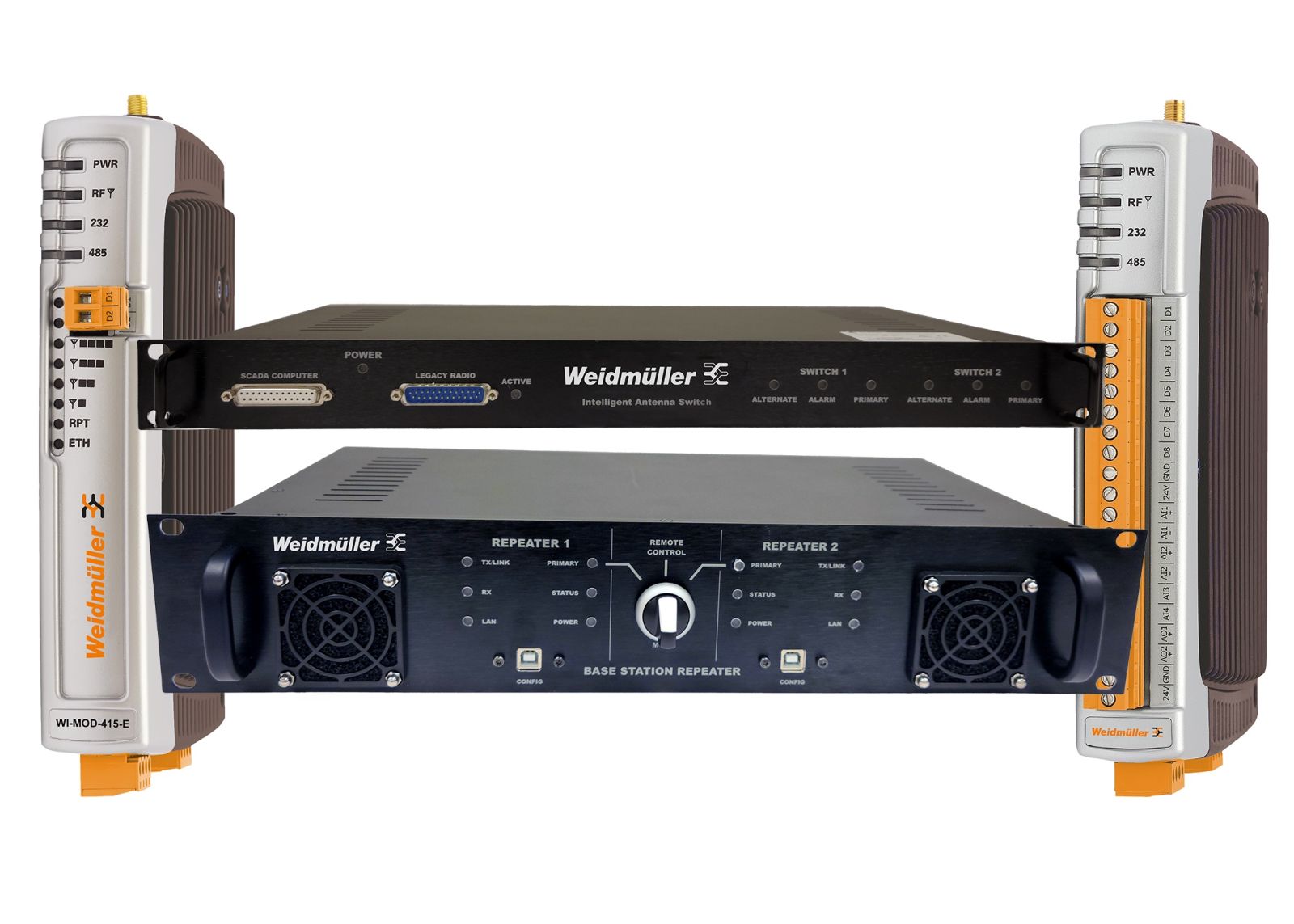
The new Weidmuller Network Migration System is comprised of Ethernet/Serial modems, I/O radios, or a combination of both, along with the Intelligent Switch (IAS) and Base Station Repeater (BSR). The IAS, a fully redundant RF antenna switch, pairs with the Base Station Repeater to deliver a robust, reliable and redundant hot standby solution for base or repeater sites.
With a scalable architecture allowing for growth and future adaptations, Weidmuller’s wireless migration solution is a future-proof investment for water/wastewater systems, oil and gas pipeline monitoring, and SCADA network migration. This new radio migration solution lets utilities phase in upgrades by running old and new systems in parallel – avoiding downtime, reducing risk and erasing capital strain. Unlike rip-and-replace approaches, this solution from Weidmuller enables staged migration with parallel operation so utilities stay online, in control and financially flexible.
In addition, it provides advanced security through mitigation of cybersecurity risks and potential losses from network breaches. The entire migration process is streamlined through the pre-configured systems in the Weidmuller solution, which greatly reduces downtime.

A migration transition plan comprises four easy steps when using the wireless radio migration solution from Weidmuller:
“Interconnected networks enhance efficiency, productivity, and data-driven decision-making through seamless data exchange and remote IO monitoring. This mandates the urgency for leading-edge wireless migration and a state-of-the-art wireless system,” said Ken Crawford, Senior Director of Automation for Weidmuller USA. “Our innovative wireless radio migration solution ensures that wireless connectivity in a wide array of industrial environments has never been simpler, faster or more reliable.”
Learn more about the Wireless Radio Migration Solution from Weidmuller USA.
Weidmuller USA | www.weidmuller.com

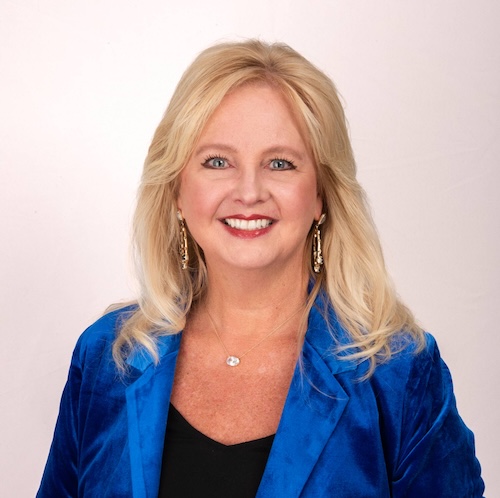 Premier Truck Rental (PTR), a nationwide custom truck and trailer rental company, is pleased to announce that Holly Brown has joined the executive team as Chief Revenue Officer (CRO). Holly joins the PTR team with decades of demonstrated success leading sales and marketing organizations across diverse industries. Her emphasis on customer success, scalable growth strategies, and effective leadership will support PTR’s continued growth in the truck and trailer rental sector.
Premier Truck Rental (PTR), a nationwide custom truck and trailer rental company, is pleased to announce that Holly Brown has joined the executive team as Chief Revenue Officer (CRO). Holly joins the PTR team with decades of demonstrated success leading sales and marketing organizations across diverse industries. Her emphasis on customer success, scalable growth strategies, and effective leadership will support PTR’s continued growth in the truck and trailer rental sector.
In her new role as CRO, Brown will lead PTR’s sales, marketing, and remarketing teams, spearheading growth initiatives, driving cross-functional alignment and capturing new market opportunities.
“Holly’s appointment as CRO marks an exciting step forward for PTR,” said Jason Gold, CEO of PTR. “Her leadership is already driving meaningful conversations around aligning our sales, marketing, and remarketing efforts, optimizing our pipeline, and sharpening our go-to-market strategy. I’m confident her expertise will be instrumental in accelerating our growth. We’re pleased to welcome her to the team.”
"I'm honored to join the PTR team as their Chief Revenue Officer and am excited to pave the way in shaping scalable revenue models while prioritizing customer satisfaction and long-term retention," says Brown.
Under Holly’s leadership, PTR will strengthen its commitment to delivering exceptional customer service while driving innovation through customized rental solutions and maintaining the highest standards of quality.
Premier Truck Rental is proud to welcome Holly Brown to the team and looks forward to the positive impact that her leadership will have on the company’s continued growth and success.
Premier Truck Rental | www.rentptr.com

As our weather becomes more volatile and severe, conventional forecasts are too short-term to serve the needs of consumers and businesses. To meet extended planning needs, Planette has made its groundbreaking artificial intelligence (AI)-driven long-range weather forecasts accessible to the public for the first time. The company’s weather forecasting tool, Eddy, provides users worldwide with access to detailed, natural-language weather predictions. Now, anyone can access forecasts up to four months in advance, while enterprise users can access up to six months in advance.
"After years in the research world, we noticed that not only was there a forecasting dead zone beyond 10 days, there was also a missing link between improved weather forecasts and the insights that consumers and businesses needed from those forecasts," said Dr. Hansi Singh, Planette's CEO and co-founder. "Eddy connects all these dots, helping consumers make safer and more confident decisions for vacations, life events, and seasonal planning while injecting certainty into uncertain times for businesses impacted financially by unpredictable weather."
Powered by Planette’s blend of physics-based models and AI, Eddy goes beyond atmosphere modeling alone. Planette combines atmospheric data with ocean and land inputs. This coupled modeling approach fills a critical information gap between traditional short-term weather predictions and long-term climate projections. This type of data is essential for industries like travel and event planning, which face growing economic pressures due to the impact of extreme weather events.
"Planette sits at the intersection of science and action, taking the best available science, applying advanced AI, and turning it into precise, long-range forecasts that businesses and the public can use immediately," said Dr. Kalai Ramea, Planette’s CTO and co-founder. "Extreme weather is already disrupting supply chains, destabilizing insurance markets, and threatening lives. The earlier you can see it coming, the more you can do to prepare. That’s the gap we’re here to close."
Eddy delivers weather forecasts for any address-level location globally, including information on temperature, precipitation, and other environmental variables. Businesses can obtain a subscription to the enterprise application programming interface (API) version of Eddy, which includes an extended six-month forecast window and bulk queries for multiple locations and timeframes.
Businesses across sectors impacted by weather, including airlines, hospitality chains, online booking platforms, outdoor travel operators, event venues, wedding and festival planners, sports teams, and insurers, can anticipate weather impacts months in advance and take action to protect people, mitigate risks, and tailor their services accordingly.
Planette’s technology supports a range of use cases, including insurance, logistics and shipping, energy, finance, agriculture, infrastructure, and more. The company aims to provide earlier insight into weather conditions that impact timing and safety, enabling businesses, institutions, and consumers to make proactive decisions, thereby saving lives and reducing economic losses.
As an example, Planette has collaborated with non-governmental organizations (NGOs) across Africa, including Alabaster International, where the team recently visited the Ethiopian highlands to use seasonal weather forecasts to support agriculture in partnership with Deep Impact AI. On the same trip, they collaborated with Goodbye Malaria and Nubi AI in South Africa to explore using subseasonal weather forecasts to support anticipatory action for malaria prevention.
Planette | planette.ai
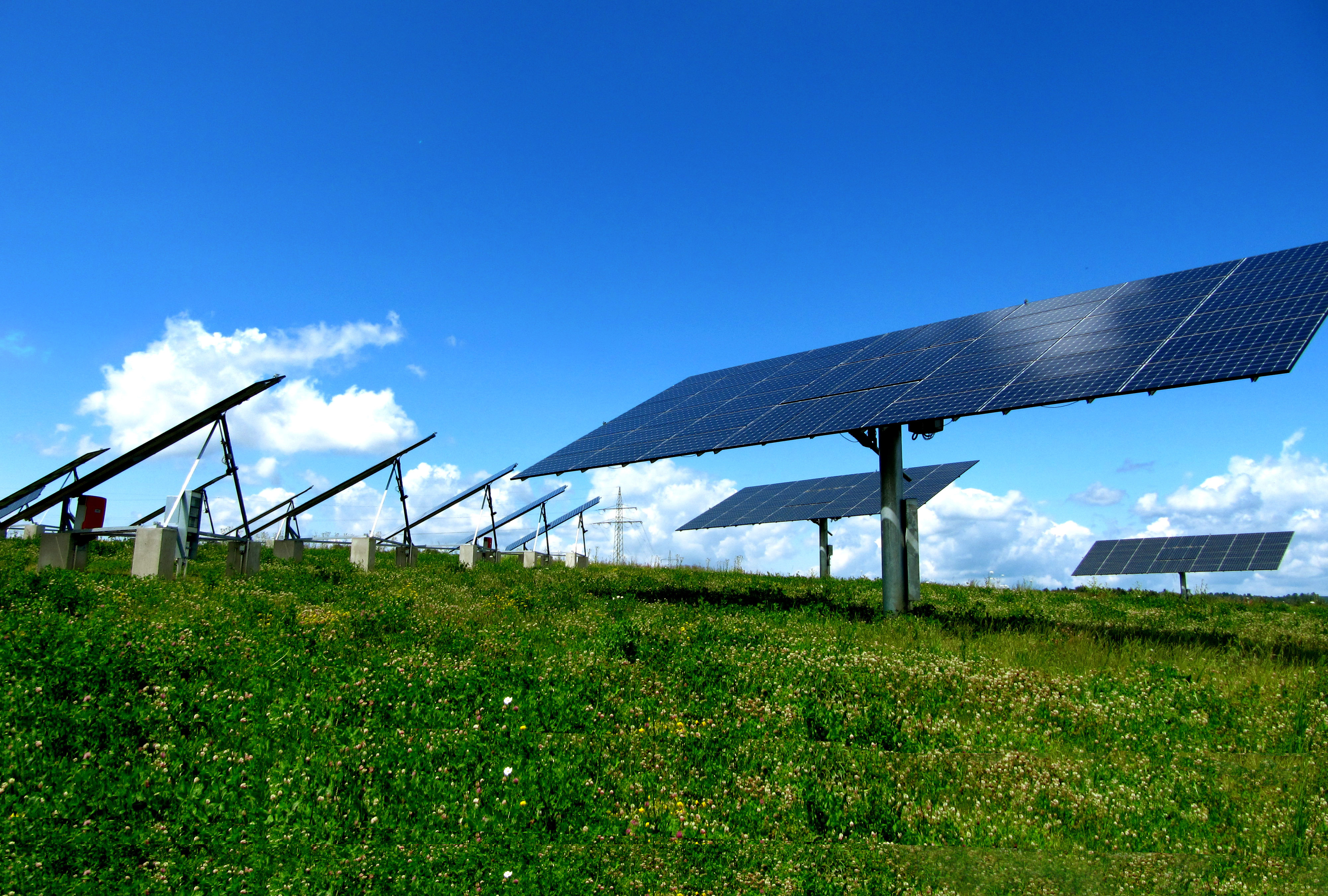
SolarBank Corporation (NASDAQ: SUUN) (Cboe CA: SUNN) (FSE: GY2) ("SolarBank" or the "Company") is pleased to announce its plans to develop a 7.2 MW DC ground-mount solar power project known as the Glor Rd project (the "Project") on a site located in upstate New York. With a secured site lease and interconnection study underway, the Project is another key addition to SolarBank's expanding development pipeline—which exceeds one gigawatt—as well as the Company's commitment to advancing community solar.
The Project will be eligible for the VDER rate compensation mechanism under NY Public Utility Commission case 15-E-0751. The year one average compensation is currently projected at $0.0971/kWh. The VDER (Value of Distributed Energy Resources) rate for solar projects in New York is the rate payable to the owner of the Project in return for the energy that is supplied to the grid.
Assuming the Project's interconnection study is successful, the Company will continue to work to complete the permitting process and secure the necessary financing for the construction of the Project. The Project is expected to be eligible for incentives under the New York State Energy Research and Development Authority ("NYSERDA") NY-Sun Program. The Company is targeting incentives of up to $0.245/W DC for the Project. These incentives are a one time payment that are used to help support the financing required for the Project.
Once completed, the Project will be operated as a community solar project. Community solar is a group of solar panels with access to the local electricity grid. Once the panels are turned on and generating electricity, clean energy from the site feeds into the local power grid. Depending on the size and number of panels the project has, dozens or even hundreds of renters and homeowners can save money from the electricity that is generated by the project. By subscribing to a project, a homeowner earns credits on their electric bill every month from their portion of the solar that's generated by the project, accessing the benefits of solar without installing panels on their home.
Solar Simplified handles all customer-facing activities for the Company's community solar projects, allowing it to focus on developing and expanding its renewable energy portfolio. Solar Simplified's expertise in acquisition, enrollment, and management ensures full project subscription and maximized revenue from day one. With a business model that aligns seamlessly with the Company's, this partnership drives sustainable growth, enabling the Company to accelerate development, bring more projects online each year, and create greater value for its business and the communities served by the Company.
There are several risks associated with the development of the Project. The development of any project is subject to receipt of interconnection approval, receipt of a community solar contract, required permits, the continued availability of third-party financing arrangements for the Company and the risks associated with the construction of a solar power project. In addition, governments may revise, reduce or eliminate incentives and policy support schemes for solar power, which could result in future projects no longer being economic. Please refer to "Forward-Looking Statements" for additional discussion of the assumptions and risk factors associated with the Project and statements made in this press release.
SolarBank Corporation | www.solarbankcorp.com
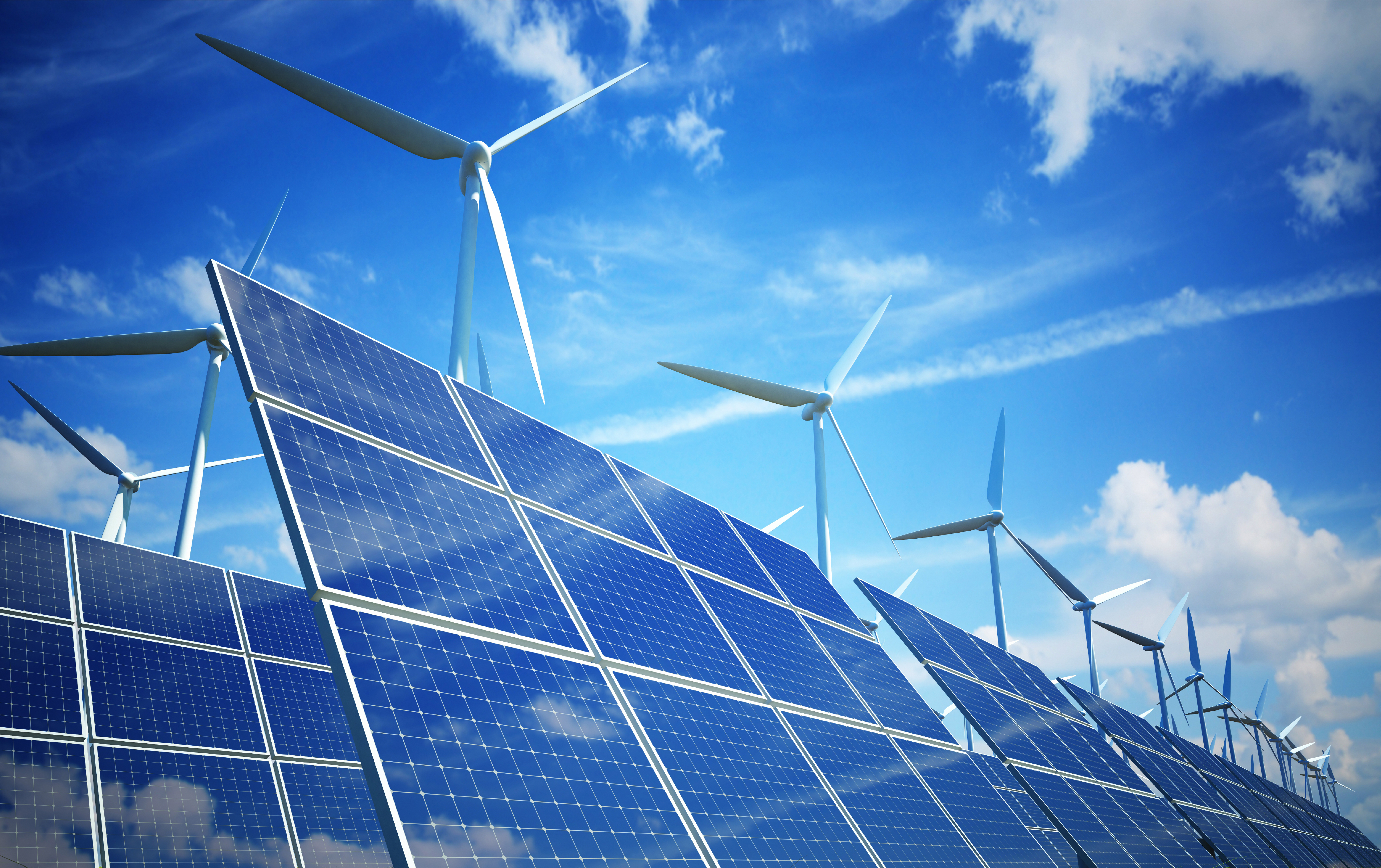
Corning Incorporated (NYSE: GLW) announced an acceleration of its advanced manufacturing operations in Saginaw County, Mich., to support increasing demand for U.S.-made solar components.
Corning’s new manufacturing facility is expected to create approximately 400 new, high-paying jobs for a total of 1,500. The new facility will extend Corning's opportunity in the solar market, building off its leadership position in the manufacture of hyper-pure polysilicon through its ownership of Hemlock Semiconductor (HSC).
Wendell P. Weeks, chairman and chief executive officer, said, “We are proud to meet the increasing demand for U.S.-sourced solar products by accelerating the ramp of our advanced manufacturing assets and support the nation’s priority of domestic energy security.”
Weeks added, “Corning has a long, proud history in Michigan, and we’re excited to expand our footprint here by increasing our investment and creating more advanced manufacturing jobs that pay significantly above the regional median.”
The company’s increased manufacturing capacity will enable Corning to supply high-quality solar wafers and help strengthen the domestic solar supply chain with industry-leading solar manufacturers. Last month, Corning, Suniva and Heliene announced the only solar module made with polysilicon, wafers and cells manufactured in the U.S.
“Corning is excited to leverage our advanced manufacturing expertise to deliver top-quality solar components and secure the U.S. energy supply chain,” said AB Ghosh, Corning Vice President and General Manager of Solar Technologies and Chairman and CEO of Hemlock Semiconductor.
Corning Incorporated | https://www.corning.com/worldwide/en.html
Alternative Energies Mar 31, 2025
Green buildings are transforming the way we design, construct and operate structures by focusing on energy efficiency, environmental responsibility and occupant well-being. As technology evolves, innovations like organic printed semiconductor systems....
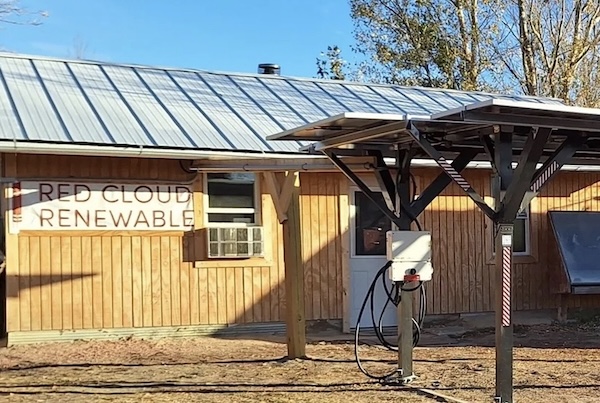
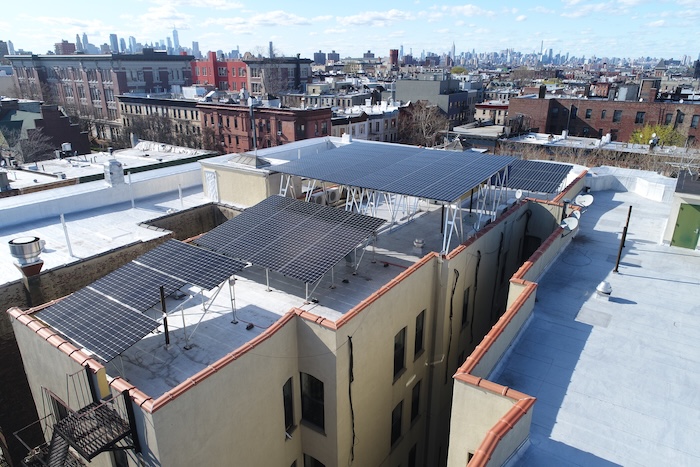
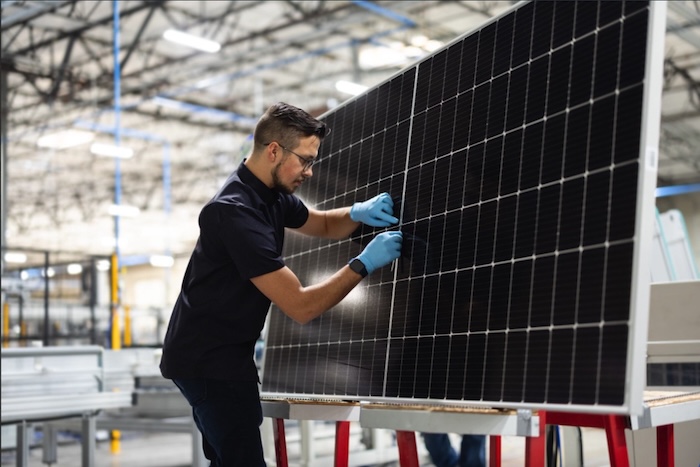
A historic milestone in renewable energy deployment has been reached in the United States, and it all started with the vision and leadership of Chief Henry Red Cloud at the Red Cloud Renewable Energy Center (RCR) in Pine Ridge, South Dakota....
Given the Trump administration’s past approach to renewable energy, solar developers and installers nationwide are bracing themselves for another period of lack of support for renewables. But the success of the Inflation Reduction Act’s (IRA) ....
The global solar industry has experienced substantial growth and maturation over the past decade. As a result, we now have easy access to high-efficiency solar panels equipped with extended warranties of 25 years or more. Considering that we rarely e....
Renewable energy sources such as wind an....
As wind energy continues to expand its r....
As the renewable energy sector continues....
Significant advancements in battery technology—including lithium-ion, solid-state, and other emerging technologies have occurred in recent years as was recently acknowledged by institutions such as the International Energy Agency and BloombergNEF([....
The move toward green, clean, sustainable energy will require a massive investment in research and development (R&D) to develop the innovations that will accelerate the modernization of North America’s electrical grids. Advancements in Battery ....
With the increase of electric vehicles on the road, there is growing demand for EV chargers. Drivers are left with a few different options: they can use a public charger, they can charge at work if they are lucky enough to have that option, or they c....
Green buildings are transforming the way we design, construct and operate structures by focusing on energy efficiency, environmental responsibility and occupant well-being. As technology evolves, innovations like organic printed semiconductor systems....
For fuel cell-powered transportation, the future hinges on investment in six key areas As a transportation mode that uses the universe’s most abundant element, one that’s renewable and yields zero tailpipe emissions other than water, hydrogen-....
As the global energy transition marches on, hydrogen remains a promising energy carrier for a decarbonized system. Demand for clean hydrogen is expected to increase two to four times by 2050, facilitating the shift to a carbon neutral grid and cleane....